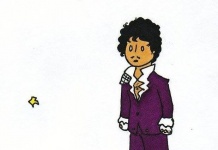 The SFWA actually can do some useful things when it’s not getting embroiled in scandals. A press release on its web site notes that former SFWA President Michael Capobianco will be attending some US Copyright Office roundtables on the problem of orphan works on March 10th and 11th. The problem posed by orphan works is becoming more obvious the longer copyright lasts. However, the SFWA suggests that the problems may not be as severe as some copyright reform advocates claim.
The SFWA actually can do some useful things when it’s not getting embroiled in scandals. A press release on its web site notes that former SFWA President Michael Capobianco will be attending some US Copyright Office roundtables on the problem of orphan works on March 10th and 11th. The problem posed by orphan works is becoming more obvious the longer copyright lasts. However, the SFWA suggests that the problems may not be as severe as some copyright reform advocates claim.
The SFWA’s full position on the orphan works matter is laid out in a white paper (PDF) that it submitted to the Copyright Office on Febuary 4, 2013. The SFWA feels that the copyright office calling for a “good faith” search sets too low a standard, and wants the office to set specific standards for diligent searches that must be conducted before such a use can be made. It also wants the Copyright Office to establish an Author Information Directory where authors can register their contact information to make themselves and their heirs easier to trace. An escrow fund should be established into which payments for use of orphan works can be made. The Copyright Office should make it easier to track freelance contributions to collective works. And the Copyright Office should declare that the diligence of the rightsholder search should be the most important factor when a court decides whether to award enhanced damages for infringement.
The one thing that puzzles me is the SFWA’s contention that
If no claim is made within ten years, the funds in escrow would be sent to an organization able to distribute the funds to rightsholders. For written works, we strongly suggest using the Author’s Coalition, which processes foreign reproductive rights payments, or a similar organization designated by the Copyright Office. Works republished via this avenue should be republished unedited for style or content.
But if nobody stepped forward to claim the money in ten years, what rightsholders would the money be distributed to? If there were rightsholders, they’d surely turned up in the diligent search, or else have found out and claimed it by then.
That puzzler about where the escrow funds go aside, I can’t really fault any of the SFWA’s recommendations. As the SFWA notes later in the paper, it has run across situations where its own authorial estate database would have located the rightsholders to a work someone else presumed to be orphan. As nice as it would be to see these works of dubious copyright get back into circulation, it does seem like it would be a good idea to make sure beyond a reasonable doubt that their owners can be found, and that they can be compensated if they should come forward later on.
(At least insofar as they’re not being used for a purpose that would be considered fair use, and hence no compensation required. Elsewhere in the PDF, the SFWA makes no bones about not considering Google Books to be fair use, but noting that if it should turn out to be found so, it’s even more urgent that an accurate directory of author contact information should be created.)
The copyright office will be transcribing the events and posting them to its web site. For members of the public who also wish to be heard on the matter, the Copyright Office should have a public feedback form on its site no later than March 12th.
































How about we go back to copyrights needing to be extended after something like 20 or so years so help bring back the public domain.
You won’t get any argument from me.
Let’s go back to copyright length being 20 years or the lifetime of the original creator, which ever is less, PERIOD. Then there would be no orphan works. And we would return to the original premise of copyright: (please note it is to PROMOTE PROGRESS and for LIMITED TIMES, not to enrich authors’ heirs)
Section 8, para 8 “To promote the Progress of Science and useful Arts, by securing for limited Times to Authors and Inventors the exclusive Right to their respective Writings and Discoveries;”
Just because someone has done some unspecified search for the copyright holder of a work doesn’t mean there is not someone(s) out there who is the unknown heir(s) or assign(s) and who should legally have a say over the work. I don’t see why me as a creator, or someone in 70 years who finds out they are the copyright holder of my novels, shouldn’t we be abe to maximize profits (such pennys as they are)? Who cares if some other person(s) want to republish a supposedly “orphaned” work for their own profit, when in fact there may well be someone)s) who should have ownership. If someone wants to make some pennys of their own off some writing. Why don’t these people create something new of their own? Or publish from the sea of other current writers that are out there.
Post-modernism, pastiche, montage and mash-ups be darned.
I have to contend that yes, the orphan works problem is as big as people are saying it is. It all comes down to things having copyright immediately upon being fixed in a tangible medium. The orphan works problem is not primarily regarding books with an author byline and some form of information about who wrote it. That can in itself be a huge problem, since there is sometimes no way of figuring out what person with that name is being referenced. If all you know is that it was written by John Smith sometime in the 20th century, that is not enough information to start any kind of a reasonable search.
However, the bigger problem is with things like pamphlets with no author listed, photographs with no information about who is in them, recorded oral histories with no indication of who is speaking, and other things like that. In those situations often the only way of figuring out who the copyright holder is, would be to digitize it, and put it online with a call to whoever has information about it to please come forward. However, institutions that might be able to do that are too scared to because they open themselves up to lawsuits and don’t have the funds to deal with that, and are trying to respect the creators wishes. So, that material sits in an archives somewhere and no one ever knows anything about it, valuable as it may be.
And if institutions do have to pay to use orphan works, and that money just goes somewhere and sits there, all that will happen is more of those things sitting in an archives and not doing anything, because most institutions don’t have the money to throw around, when they don’t know if it will ever actually get to the creator of the work. Even now, those places that do digitize orphan works and include a call for information about them, will include the policy that if they are contacted by the creator of the work, they will pay back royalties for the use of it and take it down if asked.
Full disclosure: I am speaking from the perspective of someone involved in digitizing cultural and historical works for a library archives, and currently trying to figure out how to track down a number of creators when all the information I have to go on is “Student Speaker”, or “Message”.